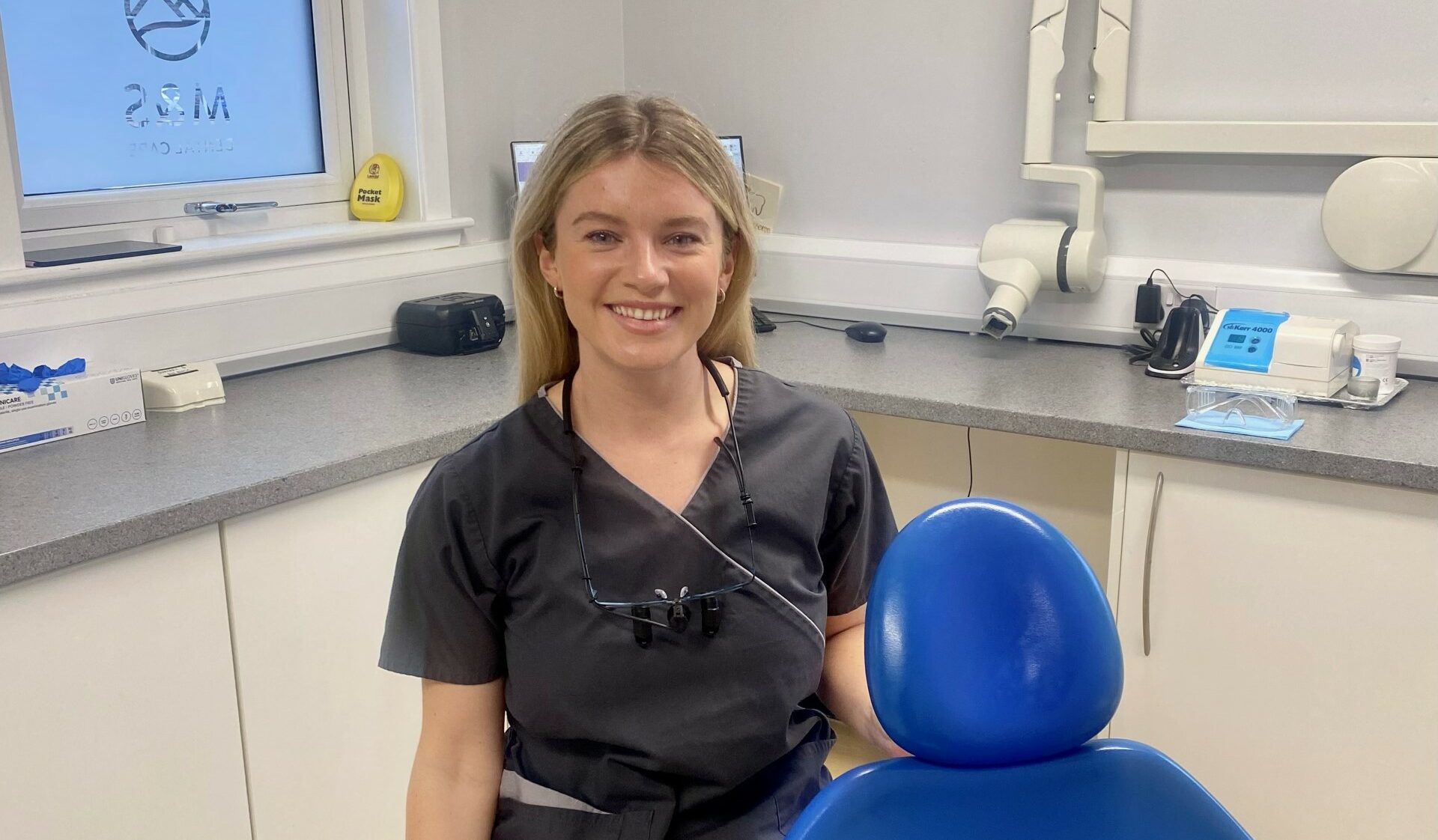We speak to Fiona Sloss, Dental Therapist at Clyde Munro Dental Group, about what the role means to her and how dental therapy skills can be better utilised within the practice.
Could you outline your career so far?

I started working as a Dental Nurse when I was 19 years old, but I wanted to be more hands-on and involved with patient care. I took the online access to higher education diploma and was later accepted by the University of Sheffield to study hygiene and therapy when I was about 21. It was a fantastic course and I couldn’t recommend it enough – there was a practical approach with a lot of emphasis on therapy and we were trained alongside dentists.
I studied during Covid, which brought its own challenges. We could only see a limited number of patients each week, which delayed graduation. I was therefore pleased to find a job in a great practice, which later joined the Clyde Munro group. It meant moving to a small Scottish town, which might not have been the easiest relocation, but my practice colleagues helped me find an Airbnb until I could purchase my own place which was amazing. My family is Scottish so I have spent much time here, and I can’t speak highly enough of the country and the people.
What do you enjoy most about the dental therapist role?
Definitely the patient interaction! I enjoy getting to prevent problems, while also being able to help people out of problems that have already occurred. Seeing patients leave the practice happier than when they arrived is the best.
I also really enjoy the restorative work and in future would like to focus more on the cosmetic side. Between Direct Access and potential incoming changes to the dental hygienist/therapist’s prescribing rights, there are many things we can do – and even more we will be able to do – in these areas.
How important is the role of dental therapist in practice?
For patients, the dental therapist can help shorten wait times for treatment. My scope of practice is smaller than a dentist’s, but that means I focus specifically on the procedures I do offer. I also usually have more time in appointments to dedicate to prevention and patient education, which is essential for their current and future oral health. Especially when it comes to children, I find I am able to send more time with them than a dentist feasibly could.
From the practice’s perspective, my role as a dental therapist allows the dentists to focus on more advanced treatments. One of the dentists I work with likes to concentrate on implants, for example, so I take on more of the restorative work that his patients need to allow him time for this. That’s where I think the dental therapist can be best utilised in practice – working alongside dentists with a special interest in a specific area. However, the ability to share the workload is useful for many practices, especially given that most are fit to bursting with patients right now!
Why do you think the dental therapist may be under-utilised in practice and across dentistry as a whole?
In many cases, I think dentists aren’t fully aware of what a dental therapist can do. The sooner that dentists understand the dental therapist’s scope, the better. That’s why I believe my university training alongside dentists was so beneficial. Those dentists could see the value of dental therapy for them and their patients from the beginning of their careers.
What is one thing that every practice team can implement to enhance the benefits of a dental therapist?
Communication is essential. I know that I can speak to a dentist whenever I have a query or want to confirm a course of treatment. This ensures continuity of care for the patient and also shows the dentist which areas I am most confident in. This is important for building their trust in my skills – which is the second most important aspect of utilising the skill mix in the practice.
What is it like working with Clyde Munro?
On a day-to-day basis, the practice hasn’t changed since joining Clyde Munro. It’s good to know that high standards are maintained in order to meet expectations across the group, but our clinic was already in a good place. Clyde Munro has helped me introduce the GBT kit into my work, funding and supporting the change of process this required, which I really appreciated. I have been using this now for over a year and patient feedback is incredible!
What are your thoughts on the Dental Therapist Support Programme Clyde Munro offers?
I’m a big believer in this programme. If it had been available when I started at the practice, I would have raced to get involved. It’s providing a level of support that is just not available elsewhere. To have the support of the dentists in your practice echoed by the group on a wider level means a lot. It also provides a great opportunity to meet other dental therapists and hygienists – we’re often the only dental therapist/hygienist in the practice so being able to connect with more professionals in our position is amazing. In addition, Clyde Munro’s Dental Therapist Programme covers useful clinical topics which enhance the skills of newly qualified professionals or offer a valuable refresher for those who have not had a chance to utilise their therapy skills for some time. It’s all about building competence and confidence.
Any final thoughts?
The more we get used to working as a team, and the sooner all professionals become comfortable working together in this way, the better dentistry will be further down the line. For dentists beginning to work with a dental therapist, there is going to be a learning curve, but if you don’t start you won’t ever see the benefits.
Clyde Munro has recently launched a Therapist Programme, designed this to help recently graduated Dental Therapists consolidate and expand their clinical capabilities in a range of relevant areas. To learn more, visit https://careers.clydemunrodental.com/training/therapist-support-programme/




